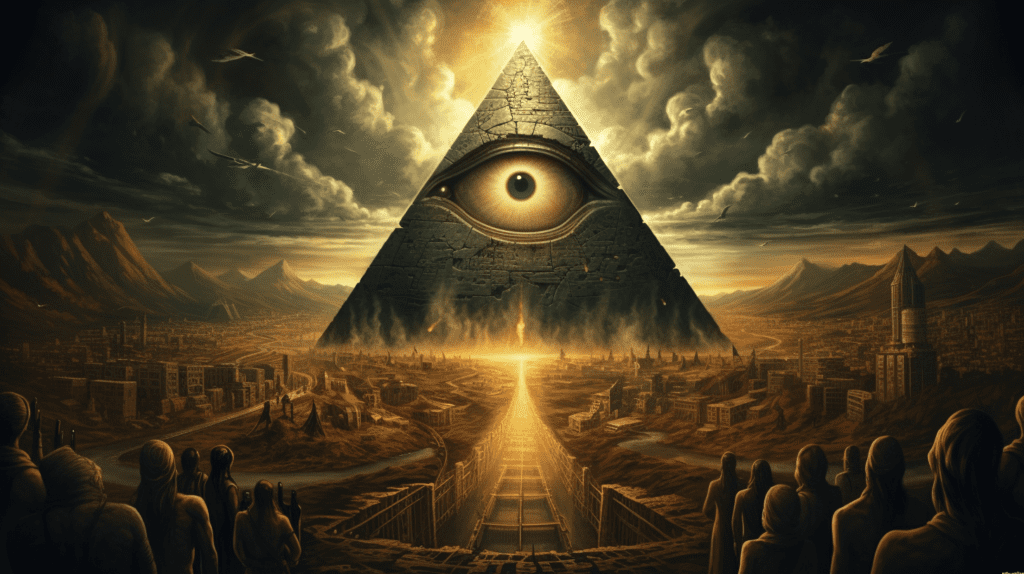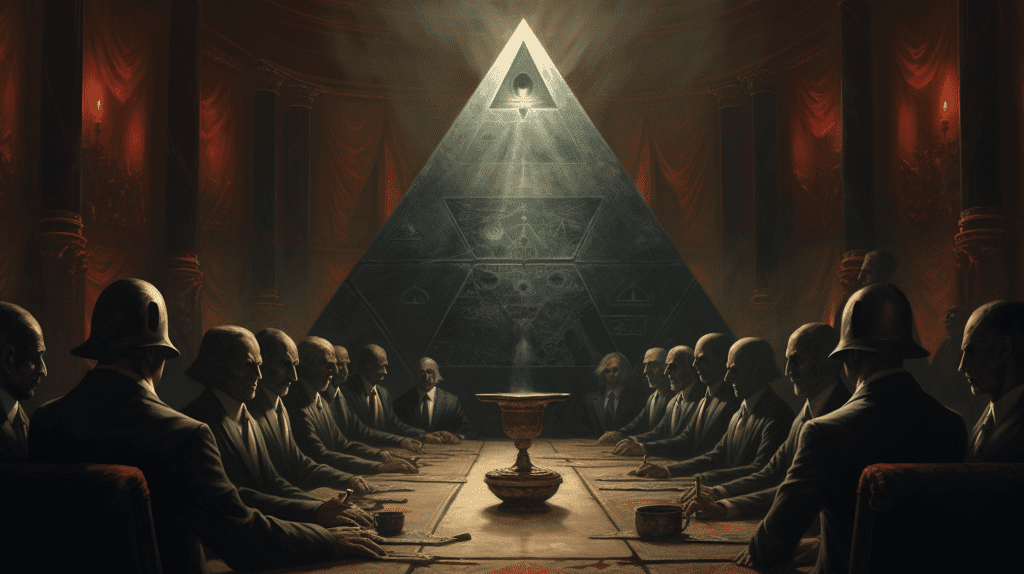The story of The Illuminati begins in 1776 with the formation of the Bavarian Illuminati, a secret society founded by Adam Weishaupt, a German law professor. Weishaupt, disillusioned with the limitations of conventional education and the power wielded by the church, sought to create an organization that promoted Enlightenment ideals: reason, secularism, and rationality.
The Illuminati initially attracted intellectuals, freethinkers, and progressive politicians. They discussed controversial ideas like secularism, civil rights, and rational thought, which were radical during a period dominated by religious and monarchical power.
Spread and suppression
The society grew quickly but covertly. By the 1780s, it had infiltrated various influential circles, including Masonic lodges. However, their secrecy and progressive ideas alarmed conservative and religious authorities.

In 1785, Charles Theodore, Elector of Bavaria, banned all secret societies, including the Illuminati, and vigorously pursued its members. This suppression led to the disbandment and scattering of its adherents.
Conspiracy theories begin
Despite its dissolution, the Illuminati’s legacy persisted, giving birth to numerous conspiracy theories. The French Revolution (1789-1799) was a significant catalyst.
Some conservative European authors speculated that the Illuminati survived and masterminded the revolution as part of a grand scheme to overthrow monarchies and religions across Europe. In this way, The Illuminati were already outliving themselves in the mind of the public.
The 19th and 20th centuries: Spread of theories
Throughout the 19th and 20th centuries, the myth of the Illuminati persisted. Anti-Semitic propagandists in the 19th century, including the authors of the notorious “Protocols of the Elders of Zion,” falsely claimed that Jews and Freemasons (often conflated with the Illuminati) were plotting global domination. This pernicious myth found a receptive audience in various parts of the world, notably influencing Adolf Hitler and the Nazi ideology.
The Modern Era
In the 20th century, especially during the Cold War, conspiracy theories about the Illuminati evolved and spread. They were often used as political tools to instigate fear about perceived enemies, both internal and external.
In recent decades, the Illuminati has been a staple in popular culture, appearing in books, movies, and music. This omnipresence in media has played a significant role in keeping the conspiracy theory alive in the public imagination.

Psychological and sociological perspectives
The staying power of the Illuminati conspiracy theory can be attributed to various psychological and sociological factors:
- Human Nature and Mystery: Humans are naturally drawn to mystery and the allure of secret societies. The idea of a hidden group controlling world events is both frightening and fascinating.
- Simplification of Complex Issues: Conspiracy theories provide simple explanations for complex world events. Blaming a single, shadowy organization for significant historical and current events is easier than understanding the multifaceted nature of these occurrences.
- Powerlessness and Control: In times of uncertainty or powerlessness, conspiracy theories offer a sense of understanding and control. Believing in the Illuminati can make the world seem more predictable and manageable.
- Political and Ideological Utility: Various groups have used the Illuminati conspiracy theory to advance their political or ideological agendas, often as a tool to discredit opponents or rally support against a perceived common enemy.
The Illuminati conspiracy theory is a fascinating case study in the power of ideas and myths. From its inception as a small secret society advocating Enlightenment ideals to its current status as a symbol of covert global domination, the Illuminati myth reflects deeper human needs and fears.
Its stickiness highlights our enduring fascination with the unknown and our propensity to find patterns and meanings, sometimes where none exist. As society continues to evolve, the myth of the Illuminati is likely to persist, morphing to fit the anxieties and questions of each new generation.
Comments are closed.